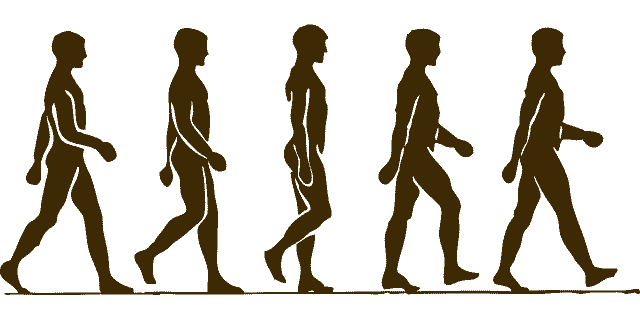
Childhood Influences
In my formative years, I went to high school in a place you wouldn't normally expect: Panama. There, I studied in both American school, where the primary language is English, and international school, where the primary language is Spanish.
However, during my 4th year of high school, we decided to move to Canada instead. And since my French at this point was sloppy at best, we figured that we would enroll in a public school program called "welcome class" first, before giving French school a shot.
And it is in this welcome class that I met a Colombian friend who's very much into environmental activism. I'd see him carrying his bike every day, discussing big ideas like justice and inequality, and going for some walks just to do some recycling.
If anything, I remembered clearly that many of his ideas were both refreshing and intriguing. Of course, it's not like I was completely oblivious to issues such as pollution before, but somehow I just didn't manage to connect the dots and think about where my water came from, or where my trash was going.
So from there, I started to get more tuned in into organisations such as Greenpeace and David Suzuki foundation. At the same time, online petition platforms were starting to thrive, so I soon found myself getting involved in petitions left and right.
College and University Years
After finally graduating high school under the French system, I decided to pursue pure and applied science in college under the English system again. There, we learned a bit about physics, chemistry, biology and mathematics — basically all the key topics science is known for.
However, the course which to this date is still the most important course I've ever taken is one which is called "environmental chemistry". There, we tackled a wide array of environmental issues from a technical, organic chemistry point of view.
For example., we would discuss environmental topics such as volatile organic compounds, mercury poisoning in Minamata, ethanol biofuel, and the effect of hydroelectric dam on sea geology. It was truly eye-opening and fascinating.
During the course, one question which frequently arises in roundtable discussions is the following:
Can our environmental issues actually be solved using innovations and technologies?
As important as that sounds, for some strange reason our professor always left that question unanswered. He wanted to leave the answer to our own device, which frustrated the hell out of me to say the least.
Either way, my exposure to environmentalism at this point has already led me to the realisation that "we've got some serious problems in this world". Those problems, while seemingly foreign before, was getting more and more relevant to me.
With a background now rooted in science, I then went on to university to pursue another field that is very much at the root of science: mathematics. There, we played around with theories and the different ways of deducing a whole field of knowledge from the ground up — using nothing but basic premises and deductive logic.
Looking back, little did I know that this training in theory building would later play a key role in my life — as I continue to devise systems and methods for solving the problems around me.
Post-University Years
After university, I began to dabble a bit in the world of social justice. I'd become a supporter of Médecins Sans Frontières, while engaging in some NGO work researching about questionable mining practices perpetrated by multinational companies.
At any rate, it'd seem that everything was paving the way for me to become a social activist. I'd begin to see that "we've got some serious problems in this world" doesn't only apply to the environment — but to many other areas of our system as well.
However, in my early twenties, I also started to experience a series of health issues. From extreme myopia, hair loss, dental problems to heart problems, psoriasis and hand tremor — it was truly the lowest point of my life.
And because of that, I was given a first-hand experience of our medical system, which I now realize to be deeply flawed. Indeed, it'd seem that whether I hit the emergency room or consulted with private practitioners, my health would either stay stagnant or get worse, but my medical bills would continue to pile up.
If anything, the more I was taken advantaged of by the medical system, the more I became determined to take my health issues into my own hand. After all, if "we've got some serious problems in western medicine", then that'd just become another issue I have to tackle.
Unfortunately, around the same time I was also hit pretty badly financially: I've started a business and done some investing which ended up putting me under water. Though this time, I cannot blame the system for my troubles.
The truth is, I've got some serious problems myself, and I needed to get my stuffs together before the candle runs out of flame. And so I was back to square one — relying on my thinking skill along with my general ability to struggle.
Emergence of A New Philosophy
As I continued to fight for my life, I began to see that whether we're talking about my problems or the problems of my surrounding, they all seemed to stem from one thing.
That is, I'd begin to realize that the underlying problem with humanity was never really about the environment, medicine or even social justice to begin with. Rather, it has more to do with our tendency to plan and implement things unsustainably.
For example, we like to operate on kneejerk reactions and short-term solutions instead of really planning things through. Often, we'd do things to satisfy one need, only to discover later that it compromises our ability to get our other needs met (subjecting ourselves to human domestication being one of them).
So the one word humanity desperately needs is not socialism, capitalism, individualism or environmentalism, but sustainabilitism. And The Sustainabilitist is merely a manifestation of that philosophy — a quest to sustainabilize all areas of human endeavors.
At the very least, the sustainabilitist philosophy has certainly become the core philosophy of my life. It's an anchor point from which we can start to devise solutions. Solutions that don't end up destabilizing our surrounding, solutions that work at the individual, organizational and systemic level.
But for that to happen though, we'd have to spend an exponential amount of time sharping our axes. This might entail, in particular:
The good news is, this also means that we don't have to operate based on the false dilemma of saving the world at one's own expense, or getting ahead in life by stepping on the world's foot.
Indeed, in a sustainabilitist world there is no left-wing or right-wing ideologies — only nuanced and balanced point of views. After all, faulty ideologies are the chief reason why our system is built on a house of cards, and this is exactly what we don't want as our power over our surrounding increases.

Why Now?
As you might have guessed, the idea of The Sustainabilitist wasn't made in one day but in a span of decades. It's a crystallization of all my experiences and skills, and only happened as a result of my own exposure to systemic issues and personal struggles.
To be sure, the preliminary versions of this project even existed back then in 2014, though at that time, I was still struggling to articulate its vision and its viability — not to mention that I was simply not knowledgeable enough to embark on a challenge of this sort.
But thanks to the experiences I've accumulated, I can now think of sustainability through a broader lens than it is portrayed elsewhere. And while many might consider this to be a bit all over the place, I think that this can also be very liberating in many ways.
For example, The Sustainabilitist can serve as a platform for sharing solutions to some of the problems I've overcome, while others might be still struggling to figure things out. In that sense, it can operate as a "solution book" to the various problems humans are facing — both at the individual and the societal level.
What's more, since my life naturally resolves around the sustainabilitist philosophy, it pretty much gives me a place to talk about anything I have in mind — without having to tie myself down to any specific topic.
Now, will the world return to a more balanced state as a result of this effort? It's hard to say. But one thing I do know is that I don't want to take this project to my grave, and that's why I'm still here trying to make it as relevant to the world as it needs to be.
